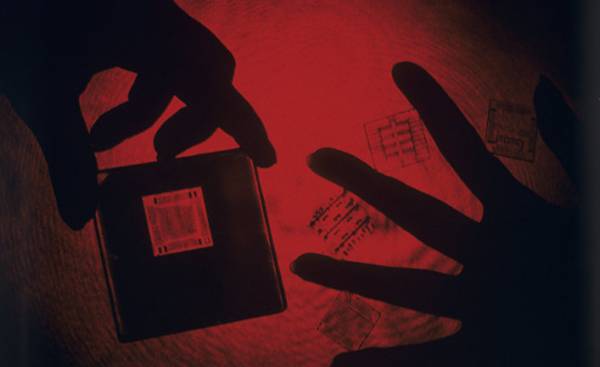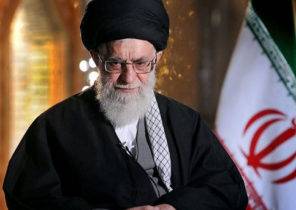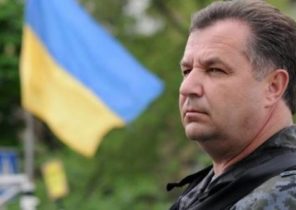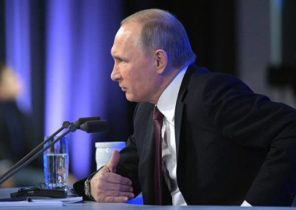
Soviet propaganda posters, for example those who are called to walk through the ruins of capitalism, found its place in the Museum. However, twenty-six years after the disappearance of the Soviet Union in the globalized world of the Internet, Russia is an information war, the most powerful and versatile.
The victims in varying degrees was Estonia in 2007, Georgia in 2008 and Ukraine in 2014, Germany in 2015, the United States in 2016. Under the gun was and the Organization for security and cooperation in Europe (OSCE), NATO, the European Union. The international edition of TV5 were also subjected to hacker attack because of the proliferation of information, which Moscow considered negative.
Started a new confrontation, from the usual military misinformation in social networks and operations to political and media field in various democratic countries through cyber attacks.
In the virtual space, “the Russians pose a significant threat to the United States” and “they are trying to drive a wedge between Europe and the us,” said James Clapper(James Clapper), the last Director of National intelligence under Barack Obama.
“Western democracies have forgotten the Soviet system, combining propaganda, media manipulation and piracy”, — said Eric Danon (Eric Danon), Deputy Director General for political Affairs Ministry of foreign Affairs of France.
Information war in action. Moscow denies these accusations. “I have not seen the slightest attempt of hacking against the US Democratic party or the fact that we ascribe France, Germany and Italy,” said February 18 in Munich, the Minister of foreign Affairs of Russia Sergey Lavrov before the high-ranking Western officials.
“Propaganda got to be smart, competent and effective” — said February 22, Sergei Shoigu, Russian defense Minister before deputies of the state Duma. Now “Russia has troops information operations that much more efficient and stronger management, which was called counter-propaganda”.
Why are the troops? “Today, in fact, there is information warfare, which is an integral part of the overall confrontation. Given this, Russia is taking steps to create the appropriate structures in this area,” — explains Vladimir Shamanov, the Chairman of the Duma Committee on defense.
“Cyberspace, as function or area, is not a Russian concept,” said Keir Giles (Keir Giles), expert of the British analytical center in the field of international relations (Royal Institute of International Affairs), which is published in the November 2016 College NATO training manual on the basis of numerous Russian documents. For Moscow, the confrontation is a much broader concept than just “information space”. And the West has discovered, belatedly, that this information war really began long ago.
Its most visible manifestations are well known: the penetration of the government and the strategic sites to undermine the people’s confidence in these institutions, the armies of “trolls” and “bots” to spread the network of false information or create contradictions in social networks, information campaigns Pro-Kremlin media.
So RT (Russia Today) and Sputnik, funded by the government and broadcast in multiple languages. They take in the sights of the West for sensitive questions like immigration crisis, playing on emotions and often distorted and conspiratorial picture of reality. RT and Sputnik were obtained in 2012 from 600 million to a billion dollars a year (today is somewhat less due to the fall of the ruble).
Troll factory
Troll factory, the real underground information Department, appeared in 2013, when the independent “Novaya Gazeta” found out about their existence thanks to the announcement of the hiring of the “operators” who had to write comments on these sites and receive payment on presentation of screenshots.
Two former coworkers who worked in the open all day nondescript buildings in a suburb of St. Petersburg, later testified, including in court, because of a dispute over pay.
“Our first task was to constantly change the proxy to our location could not set,” — said Lyudmila Savchuk. Then, operators had to choose a way (student, athlete, teacher) and the theme from the list, that is, to discredit the Ukrainian government to condemn international sanctions against Russia or to write positive reviews about the national economy.
In the “online research” employs about 600 people, who were engaged in the dissemination of Pro-Kremlin comments on social networking sites.
All these tasks were clearly stated in Russian national security doctrine in the framework of the General concept of “non-linear war” (NATO called “hybrid war”), which moves from operations to assert its influence to the use of nuclear weapons.
Cyber attack groups АРТ28 and АРТ29 that are attributed to the military (GRU) and the domestic intelligence service (FSB), supported by a huge effort in order to force a targeted group of people believe in the message.
“In cyberspace Russia plays not on the same field as US who have the technical superiority, believes Kevin Limone (Kevin Limonier) from the University of Paris VIII, one of the authors of the book “Russia: towards a new cold war?” — She wants to force the West to take a more pronounced political views in relation to cyberspace, and its strategy largely boils down to deceive the person, not the machine”.
Demolition and destabilization
The spread of the Internet lies, simplistic conclusions and falsified documents, you will need to change the Outlook of the enemy so that his decisions were favorable to the Moscow direction.
Furthermore, the objective is to create in the public opinion permissive attitude in which the message of the Russian power will be perceived as fact. So Radio Canada submitted in June 2016, the participation of canadian troops in the NATO initiatives in Latvia as “possible provocation”, which is contrary to the Fundamental act of NATO-Russia (Moscow adhered to the same position).
As mentioned in Russian documents, non-war is aimed at the masses and individuals. It is supposed Subversion and destabilization.
In any case, Moscow has no monopoly on aggressive cyberspace operations, and in 2015 at the meeting at the FSB (the successor to his native KGB) that President Vladimir Putin made it look like the response: “For the so-called containment of Russia use the entire Toolkit — from attempts at political isolation and economic pressure to large-scale information war and special services”. However, the chronology of the facts indicates that all went rather in a completely different direction.
The weapon of the weak against the strong
Russian doctrine was inherited from the Soviet period with its principle of permanent conflict with the West, for which information had already played a big role, and perfected after the collapse of the Soviet Union.
Continuity of thinking is supported by continuity of leadership. “All the officials around Vladimir Putin — the former KGB officers and believe in subversive activities, — emphasizes Marange Celine (Céline Marangé) from the Institute of strategic studies of the Military school. They all sincerely believe in the need to protect conservative values.”
As he wrote in 1998, the thinker of transformation of the Russian armed forces Vladimir Slipchenko, one of the attributes of the wars of the future will be the confrontation of the information, as information becomes the same weapons as missiles, bombs, torpedoes etc. 20 years later in the Kremlin believe that the information war in theory can prevent armed conflict, independently reaching strategic goals.
In 2000-h years “the situation has developed in the use of influence operations to restore the image of Russia”, — said Celine Marange.
In 2004, the concept of information warfare was painted in detail by retired military intelligence officer Vladimir Kvachkov. Information-psychological war (impact on personnel of the armed forces and the population) is carried out in the context of natural competition, that is, on an ongoing basis. Information technology war (focused on systems that receive, collect, process and transmit information) is carried out in the course of armed conflict. Only now in recent years, “many Russian officials have noted that outdoor, that is declared as conflict is not a prerequisite for the commencement of hostile activity in the information space,” adds Gilles Keir (Keir Giles).
Cyber weapons are considered as weapons of the weak against the strong in an unequal power opponents: in terms of conventional forces, Russia is noticeably inferior to NATO. “Our responses must be based on intellectual superiority. They will be asymmetric, less costly, but will improve the reliability and efficiency of our nuclear triad,” — said in 2006 Vladimir Putin.
Estonia, Georgia, Ukraine… In 2007, the aim of the first cyber attacks against the state became Estonia: under attack for several weeks were government websites, banks and Newspapers of the country. The action followed the initiative of the Estonian authorities to move the bronze soldier, which was a symbol of the Second world war.
The responsibility it has taken on Constantine Goloskokov, “Commissioner” of the Pro-Putin youth movement “Nashi”. The attack did not cause any reaction of NATO, although the Estonian authorities called the incident an “act of war”.
After the armed conflict in Georgia in 2008, “Moscow concluded: it lost the information war,” explains Kevin Limone. After the Arab spring of 2011 she came to another important conclusion: the United States managed to manipulate public opinion.
Used in social media protest potential of the population was supplemented by the concealed military initiatives, including information warfare and operations of the special forces, wrote in 2013, the head of the Russian General staff General Valery Gerasimov.
Hunting for programmers
In the same year of 2013 was the formation of a national control center of defense of the Russian Federation, which coordinates all military activities, including propaganda, intelligence and common operations.
A year later, “Gerasimov doctrine” were used in the Crimea was the first since the Second world power annexation of the territory of a European state: the spread of false news in social networks, cyber attacks, and the intervention of “little green men (special forces soldiers in uniform without insignia) before sending the regular forces. From that time the Russian cyber operations in Ukraine are considered by Western experts as a validation of the new features in Moscow.
In parallel with this, at the very moment when Edward Snowden received asylum in Russia, the General staff began hunting for expertise in Informatics youth for their “research departments”. “We must find them!” — cry defense Minister Sergei Shoigu at a meeting with rectors of major universities.
As noted by Kevin Limogne, in 1990-ies “the Russians have launched a very good University programming courses in Saint-Petersburg”, but after the collapse of the USSR, a number of graduates became a powerful force in the “underground” of the Internet, went into the service of the mafia. “We start the big hunt for programmers,” — said Shoigu.
The increasingly close relations with hackers
From as the successor to the KGB secret services until recently, here was an undeniable advantage over the army. In 1991 Boris Yeltsin followed the example of the States and created Federal Agency of governmental communication and information, which was engaged in electronic espionage, cryptography and cartography.
After 2003, Vladimir Putin disbanded the organization and distributed its functions between the FSO, the SVR and FSB intelligence agencies began to establish closer ties with the Russian hackers, whose criminal activities have gradually shifted to the political sphere.
According to journalist Andrei Soldatov, the Russian army began to use the services of hackers recently. The lessons of the war of 1999-2000 in Chechnya played a role.
“Although the Kremlin has tried to keep information under control, Chechen separatists launched a variety of Internet sites, he says. — Here the conflict emerged a new player: the students from Tomsk began the attack on the Chechen sites, and the Kremlin saw what these young people. Subsequently they received support from the FSB.”
Large-scale manipulation
The Russian government is not satisfied with the fact that he had instructed the young “geeks” to spoil the life of the objectionable goals. After the annexation of the Crimea information war has reached a new level. “In 2014, the state follows the new scheme, and officials were sent to companies specializing in computer science — continues Andrei Soldatov. — Fled to Prague, the representative of one of these companies told, as an employee of the Ministry of communications has asked for the assistance his company Qrator Labs to develop a system, which was subsequently carried out attacks on the Ministry of defense of Ukraine and the independent news website Slon.ru”.
The army organized a kind of subcontracting. “The creation of pages in social networks for large-scale manipulation, scanning of all systems to identify vulnerabilities and preparation attacks require considerable human resources, says the former technical Director of the foreign intelligence service of France Bernard Barbier (Barbier Bernard). Now all systems are tested to attack at the chosen moment. Any restrictions, apparently, no.”
In March 2016 General Gerasimov wrote in the article “the experience of Syria,” about the importance of combining military and the media: “Information resources have become one of the most effective weapons. Their wide use can in a matter of days to destabilize the situation in the country from the inside.(…) Indirect and asymmetric actions and ways of doing hybrid wars can deprive the opposing party’s de facto sovereignty without the seizure of the territory of the state”.
A new war is not focused on the promotion of the ideology (communism) or the protection of the “great goal”. “The goal is to control information in all its forms, emphasizes keyr Gilles. In contrast to the Soviet era disinformation is not limited to sell Russia as an idea. The only task of Moscow — to undermine the notion of objective truth”.
Today the Russian authorities applied the doctrine, apparently, is bearing fruit. “The Russians — the only one who was able to bring the art of cyber warfare to the level of the means of expression of power,” emphasizes Kevin Limone.







